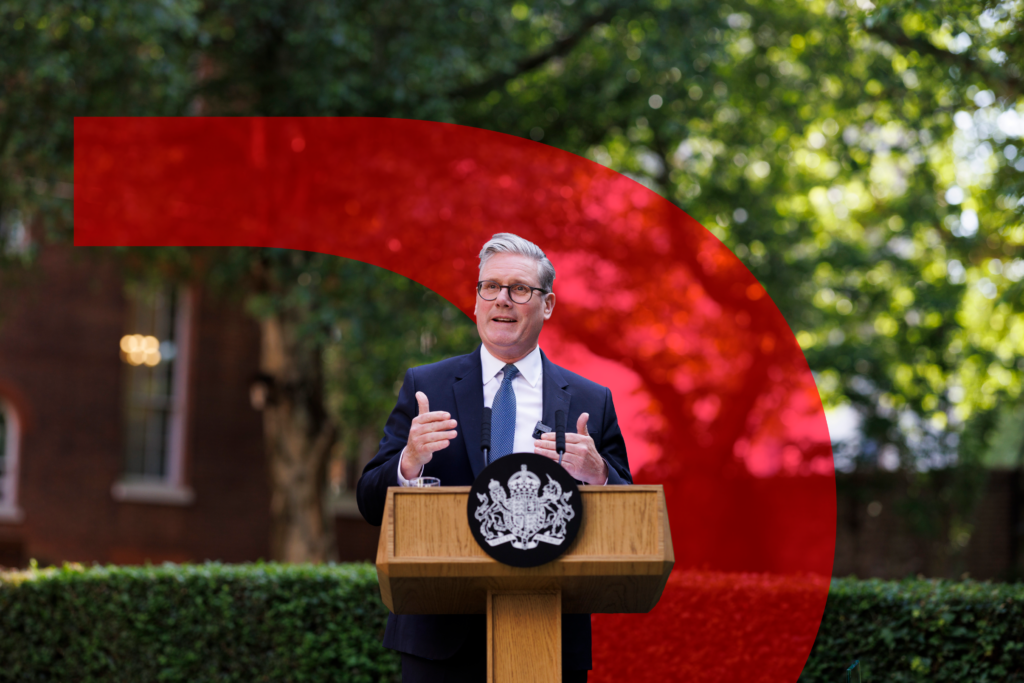As we approach the second anniversary of the Coalition, Portland’s Chief Policy Advisor, James O’Shaughnessy, takes a look at achievements so far and lessons learnt from political partnership.
The heady, uncertain days of May 2010 already feel like a political lifetime away. But as we come up to the government’s second anniversary it is worth remembering that, despite the perilous fiscal and economic situation that was the crucible for the coalition’s creation, it was a time of genuine optimism among Conservatives, Liberal Democrats and even much of the voting public. There was a real, palpable sense of shared purpose that propelled those two great political parties through the coalition negotiation process, in which I was privileged to play a part, and into government together.
So what have we learnt in those two years? Predictions abounded in 2010 that the government couldn’t possibly hang together under the combined weight of economic challenges and differing political philosophies. It would be impolite to name and shame those doom-mongers now but we have learnt first that stable coalition government is possible, even if for most politicians it will always be a second best option.
Nor do I believe the sceptics will be proved right in the longer-term. I remain convinced, as I have from the start that the shared commitment to the fiscal strategy – the very reason, ultimately, why the government came together in the first place – and the fact that being in power, however imperfectly, is infinitely preferable to being in opposition will mean the coalition goes the distance to 2015. How the last few months of the government will play out is still anyone’s guess, but don’t bet on it being the chaos that some are predicting. That is in the interests of neither governing party.
Second, we have been reminded yet again that any government will only be successful so long as there is a desire to move forward and take on the next set of challenges. This is especially true of coalitions. The initial energy that brought the Conservatives and Liberal Democrats together powered them through the Programme for Government, a Queen’s Speech, the Emergency Budget and a Comprehensive Spending Review all within the first six months. History will judge that to be a pretty extraordinary achievement.
The desire ‘to not leave anything on the pitch’, to use a sporting metaphor, continues to provide the impetus behind the ambitious education, welfare, criminal justice and – yes –health reforms even now. But it is difficult to keep up that momentum, to maintain a sense of purpose, even when a single party is in power. When it is two the challenge becomes even greater. There have been rumours of a second Programme for Government, a ‘renewal of the marriage vows’, which would be welcome. The process of pulling the first one together was a tough challenge for those of us involved, but it forced a new government to think about its policy priorities in a disciplined way and it provided a foundation of political support for some controversial changes. If that does not materialise then the next Queen’s Speech in May should be used to reaffirm the coalition’s desire to use the rest of its time in government productively.
Third, we have learnt that a government built on a partnership has proven, perhaps unsurprisingly, to be incredibly positive towards the concept of collaboration with non-governmental bodies of all kinds. This positive attitude to the role that charities, companies, trade bodies, NGOs and others can play is undoubtedly influenced by the nature of coalition politics, but it also comes from deep underlying currents within the ideologies of each of the coalition parties. There is a root of empirical scepticism, a suspicion of the claims of those in power to know all the answers, which is common to Conservatives and Liberal Democrats. It is an important part of their shared history and it lies in stark contrast to the Fabian centralism that still governs much Labour party thinking.
In practical terms it means that Ministers and their advisers are always on the lookout for partners who can help them meet their political objectives. Being in government is like attempting to solve an intensely complicated, multi-dimensional puzzle with only patchy information and in an environment where failure is punished ruthlessly. It is a forbidding prospect, which is why any third party who can help a politician solve at least part of that puzzle will always be welcome. This combination of practical and philosophical factors explains the explosion of different forms of partnership in everything from the Public Health Responsibility Deal to the Free School movement, and from the Work Programme to the Big Society Bank.
The reality of being in government and the inevitable compromises involved can take their toll. Relationships become less trusting and more transactional, policies become harder to agree in a timely way. So both parties would do well to remember that they are in government because of each other, and that they have achieved much already. And if they can keep alight that burning desire to govern, so tangibly present at the beginning, for another three years then they have the chance to go down as one of the most successful reforming governments of all time. And who would have predicted that two years ago?
James O’Shaughnessy is Portland’s Chief Policy Advisor. He served as head of David Cameron’s policy unit in 10 Downing Street.






